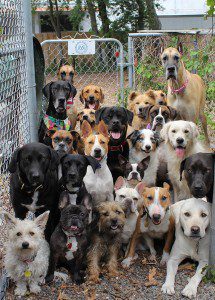I’ve been thinking about ashes lately. I just finished reading Sara Miles’s City of God, a memoir about taking ashes into the streets of the Mission district in San Francisco on Ash Wednesday (“Remember you are dust, and to dust you shall return”). And we buried the ashes of a family member in the back yard last Wednesday.
Bean, our Boston Terrier, died almost a year and a half ago; the small wooden box containing her ashes have been on the nightstand next to Jeanne’s side of the bed waiting for the next time our youngest son Justin visited so Bean could join Spooky and Snow, pets who preceded her into the great unknown, in an appropriate location in our back yard.
My biggest question about heaven when growing up in a conservative Protestant world was “will my pets be there?’ Because, truth be told, heaven did not sound like a particularly interesting place to be—unless those animals whom I had loved and lost already would be there to greet me when I arrived. I don’t know what I think about heaven any more, but my attitude is the same. If there is such a place, my pets who have gone on before had better be there. As my years now extend into my sixth decade, my canine and feline greeting committee is growing. Rex, Lassie, Stokely, Natialie, Rachel, Midnight, Express, Moses, Velvet, Pita, Spooky, Snow . . . and now Bean.
 Bean joined our family toward the end of 2008 after a challenging first few years of her life. Our younger son was going through a rough patch and staying with us; for his birthday, we decided to get him a Boston Terrier (one of his favorite breeds). He did some research and found a four-year-old Boston who had been rescued from a puppy mill in Arkansas and was now at a shelter in Massachusetts. Bean joined our dachshund Frieda; Winnie, our second dachshund, joined the pack in June of 2009.
Bean joined our family toward the end of 2008 after a challenging first few years of her life. Our younger son was going through a rough patch and staying with us; for his birthday, we decided to get him a Boston Terrier (one of his favorite breeds). He did some research and found a four-year-old Boston who had been rescued from a puppy mill in Arkansas and was now at a shelter in Massachusetts. Bean joined our dachshund Frieda; Winnie, our second dachshund, joined the pack in June of 2009.
The three of them lived together as a small, dysfunctional pack with Jeanne and me for close to eight years. There was never any doubt about who the alpha of the pack was; in truth, Frieda is the alpha living thing in the house, imposing her will and wishes on Jeanne and me on a daily basis. Bean and Winnie never did sort out who was number two and who was number three in the pack, regularly getting in each other’s face over toys, treats, and—especially—who was more loved by Jeanne.  Neither could bear the sound of Jeanne talking to the other or, God forbid, the sight of Jeanne petting the other, and would do whatever possible to bump the rival for Mom’s affection out of the way.
Neither could bear the sound of Jeanne talking to the other or, God forbid, the sight of Jeanne petting the other, and would do whatever possible to bump the rival for Mom’s affection out of the way.
Bean’s attitude about me evolved slowly over the years from low grade terror through grudging tolerance to, finally, the recognition that I probably was not going to kill her after all and actually had some good things to offer, such as a piece of the orange that I habitually eat for dessert after dinner. There are probably many reasons for why Bean never really became comfortable with sharing her house with me. First, two months after she came to us I left for a four-month sabbatical stay in Minnesota, returning home during those months only once for a few days for my birthday. By the time I returned home from sabbatical, Bean and Jeanne had established an unbreakable bond that I could not have been part of even if I had wanted to. Bean’s attitude toward me upon my return was pretty much “Who the hell is this intruder?” and in many ways remained that way going forward.
I’ll remember many things about Bean. How the only way she ever expressed her pent up aggression was by gutting every new toy she ever met and pulling its stuffing out as quickly as possible. Her farting (it was bad). The dance she would perform in anticipation of a treat or meal (which we called “the Bean dance”). Her unsuccessful attempts to bury a dog treat under her bed. Her vain attempts to get her stuck-up dachshund sisters to play with her. HER SNORING—this was unbelievable. She snored more loudly than all four of my grandparents combined, and they all were snorers. Bean slept in a bed at the foot of our bed; her snoring regularly woke me up from a dead sleep in the middle of the night. The fact that I was even able to sleep at all with such a racket is testimony to the fact that one can literally get used to anything.
I miss Bean, although not as much as Jeanne does—Bean was her favorite. About a month after Bean left us, I came across a picture on Twitter that I choose to interpret as a message from wherever Bean now is, letting us know that she’s having a good time (she’s in the middle of the picture) and that she’s found a bunch of canine friends who appreciate her a lot more than her bitch dachshund sisters did.

Good for her. As to whether dogs (and most cats) go to heaven, Google “Do dogs go to heaven?” sometime and enjoy the knots that pastors, theologians, and others tie themselves into trying to answer a question about something we know less than nothing about.
For each of us, the meaning of “Heaven” is a projection of what we find most important, enjoyable, and worth celebrating onto an entirely blank screen. We know nothing about heaven, including whether there even is one. But I’ll tell you this, my greeting committee in heaven will include all of my former pets (well maybe not one of the cats, who was a total jerk). I have no interest in spending unlimited time in a place with no dogs and cats. Come to think of it, my heaven will only accept humans who understand that our four-legged companions are regular and predictable ways that God gets into the world. Anyone who denies that can spend eternity somewhere else.














